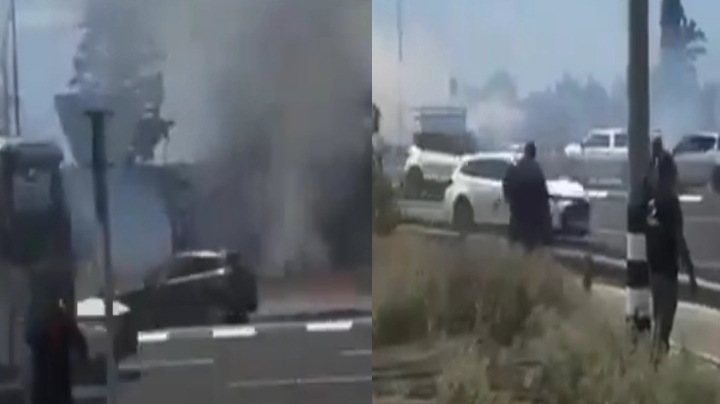Breaking: Hezbollah Suicide Drones Attack Israel

In a significant escalation of regional tensions, Hezbollah launched a series of suicide drone attacks on Israel today. The incident marks a notable shift in tactics by the Lebanese militant group, which has traditionally relied on rocket fire and ground incursions.
The attacks reportedly targeted multiple locations in northern Israel, causing extensive damage and leading to heightened security alerts across the region. According to initial reports, the drones were equipped with explosives and directed towards strategic sites, including military installations and infrastructure.
Israeli defense forces responded swiftly, deploying anti-drone measures and intercepting several of the unmanned aerial vehicles. Despite these efforts, some drones managed to penetrate Israeli airspace, resulting in explosions that caused significant structural damage but, fortunately, no immediate casualties.
The use of suicide drones by Hezbollah represents a sophisticated and concerning development in the group’s arsenal. These drones are believed to be either indigenously developed or supplied by allies such as Iran, which has been known to provide technological and logistical support to Hezbollah. The drones’ ability to evade detection and deliver precise strikes underscores the evolving threat posed by non-state actors in modern conflicts.
Israeli authorities have condemned the attacks, calling them a “flagrant violation” of sovereignty and a direct threat to national security. Prime Minister and defense officials held an emergency meeting to assess the situation and consider possible retaliatory measures. The Israeli military has vowed to take all necessary steps to protect its citizens and prevent further incursions.
The international community has expressed concern over the escalation, with calls for restraint and dialogue to prevent a broader conflict. The United Nations and several world leaders have urged both parties to avoid actions that could lead to a full-scale war, emphasizing the need for a diplomatic solution to the ongoing tensions in the region.
Today’s drone attacks are the latest in a series of confrontations between Hezbollah and Israel, which have seen periodic flare-ups of violence along the border. This incident underscores the fragility of the current ceasefire and the potential for rapid escalation into broader hostilities.
As the situation develops, the world will be watching closely to see how both Israel and Hezbollah navigate this precarious moment. The use of advanced drone technology in asymmetric warfare highlights the evolving nature of threats in the Middle East and the urgent need for comprehensive security strategies to address them.








